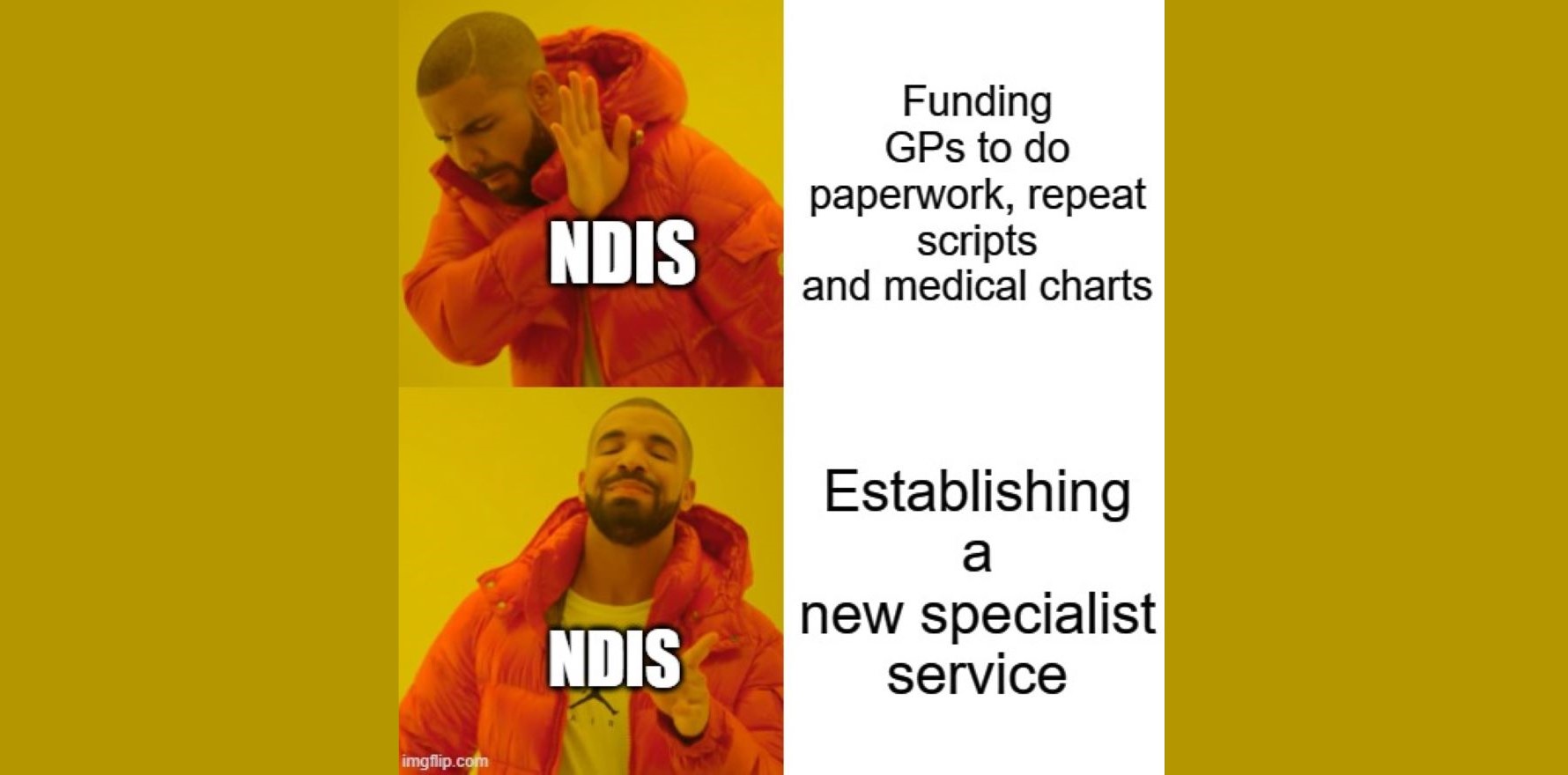The NDIS reforms are ‘full of blank pages’, says the president of disability advocacy group. But the RACGP welcomes the effort to keep the NDIS sustainable.
The RACGP has welcomed the passage of the NDIS reform bill in the Senate today.
But the president of disability advocacy group People with Disability Australia said the lack of clarity in the bill would leave GPs “in the dark”.
Today, the Senate passed major reforms to the National Disability Insurance Scheme, after securing state and territory support yesterday for a bill that has proven unpopular among disability advocates.
“This bill just passed the Senate, the house is going to rubber stamp it,” said advocacy group People with Disability Australia interim president Marayke Jonkers, who spoke to The Medical Republic as the news broke.
“This bill is like a book that has chapter headings and then blank pages … I have no words.”
The bill aims to keep a lid on NDIS spending – which has been forecast to rise in cost from $35.2 billion in 2022-23 to $50 billion by 2025-26, surpassing the annual cost of Medicare.
The bill promises to tighten eligibility requirements for services and cap the scheme’s growth at 8% a year, saving the federal government $14 billion over four years.
It also allows the ministers to determine what supports are accessible through the scheme, a draft list of which was released in August.
To get states and territories – who will provide more services under the reforms – onside, “significant changes” were implemented by the NDIS minister Bill Shorten yesterday.
The changes introduced faster timeframes for NDIS rule approval, a new conflict resolution pathway and removed the necessity for unanimous support for all new rules.
The Coalition’s support for the bill was not without reservation.
Liberal Senator Hollie Hughes called on the government to engage with “people who genuinely need this scheme”.
“We will support this – please, please get it right,” she said.
“Please do more. Please work constructively with us to do more to make sure that people aren’t left behind.”
Greens Senator Jordon Steele-John labelled the bill “the greatest betrayal of our community ever perpetrated by the government” and its passage “a moment of pain, fear and fury”.
However, the RACGP welcomed the bill “to get the NDIS back on track”.
College president Dr Nicole Higgins said the RACGP supported GP involvement in NDIS planning and coordination.
“GPs know their patients and will make the planning process more efficient and ensure patients get the right supports,” she said.
“We have also recommended making NDIS forms more user-friendly, less prescriptive, and able to integrate with general practice software.
“This will make it easier for GPs and practice teams and give us more time to focus on our patients. “
Speaking to TMR, People with Disability Australia’s Ms Jonkers said the reforms remained “full of blank pages”, which will require coordination with the states and territories to complete.
“We fought so hard [against this bill] not because we’re afraid of change, like Bill Shorten says, but because this bill doesn’t contain the details,” said Ms Jonkers.
“It contains things that are dangerous or don’t work for us as disabled people.”
According to Ms Jonkers, the bill was predicated on availability of “transitional support” provision.
“[Transitional supports] are not just for people with a disability.
“Only 600,000 people are NDIS participants, but many more people with a disability may not need as much help as the NDIS provides: people coming in and out of needing assistance for various reasons, including [those undergoing] medical procedure or … [with] injuries.”
These supports could provide a “wonderful opportunity” for those on and off the NDIS, but without clarity on what “transitional support” encompassed and how it would be provided, equitable access across the nation would become a “lottery”, said Ms Jonkers.
According to Ms Jonkers, only the ACT government has allocated money in its budget for these measures.
The lack of clarity would also leave GPs in the lurch, she added.
“[GPs] are in the dark as much as we are, because there is no publicly available definition of what a ‘transitional support’ is yet, let alone how it’s going to work,” said Ms Jonkers.
Once the reforms are rolled out, GPs should have the ability to refer patients needing support – following injury or medical procedure, as well as those knocked back from the NDIS who may need additional support – to “transitional support” services, said Ms Jonkers.
“It’s [similar to] a return to home and community care, or what was previously known as community health before that,” she said.
Related
GPs should look out for a new initiative involving “navigators”, she added.
The vision for navigators was that they would primarily work in support coordination between the NDIS, health system, judicial system and beyond, and would be available to those on and off the NDIS via referral.
“When it does come online and there are navigators, that’s something GPs practically can do that will support their patients,” added Ms Jonkers.
She encouraged GPs to check in on the mental health of their patients within the disability community during consults, amid this “very traumatic” time.
Having passed through the Senate, the bill will become law within 28 days of royal assent.





